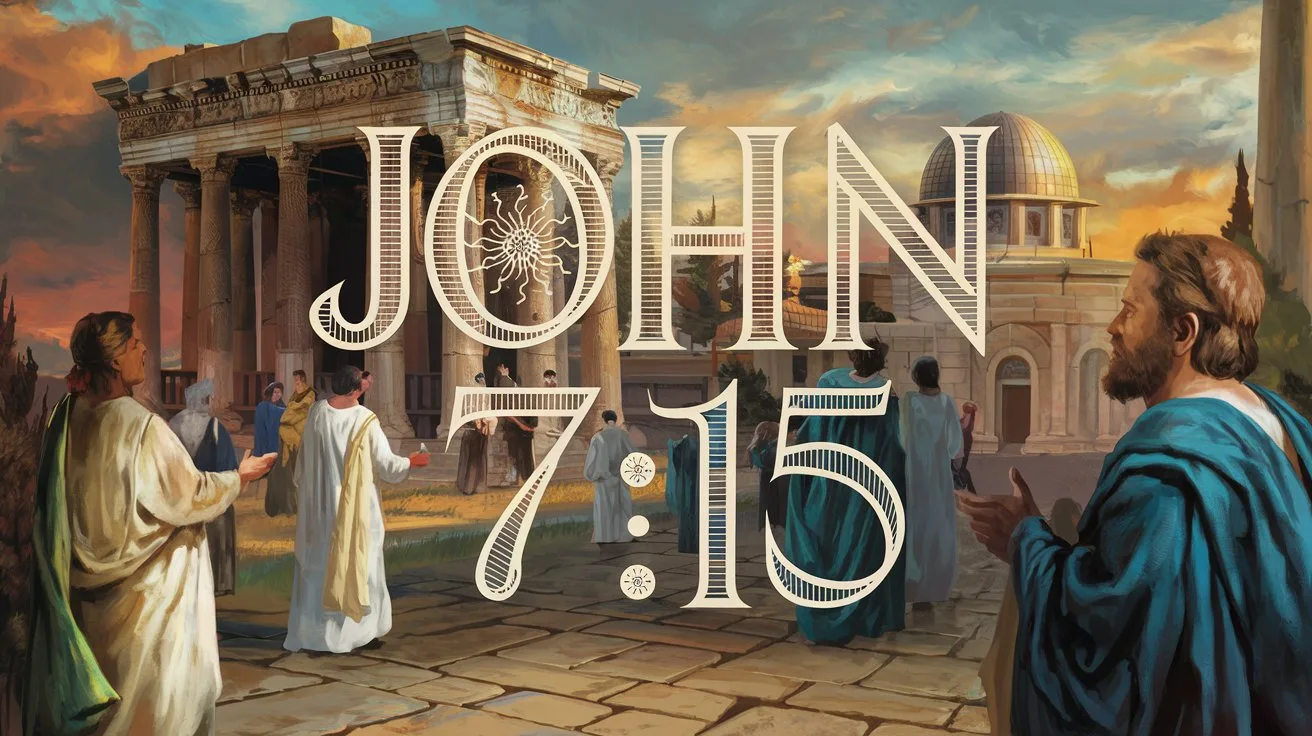In John 7:15, the people marvel, saying:
“And the Jews marveled, saying, ‘How does this Man know letters, having never studied?’”
This was not a compliment; it was confusion mixed with suspicion. The word “letters” refers to sacred writings, the Scriptures. In their view, no man could rightly interpret the Word of God unless trained by a rabbi in the formal schools of the scribes and Pharisees. Yet here was Jesus, teaching with divine clarity, piercing wisdom, and flawless authority, though He had not sat under their instruction.
What they didn’t understand was that Jesus didn’t need to be taught the Scriptures. He is the Scriptures: the Word of God in flesh, teaching the Word of God to man.
He Is the Word Made Flesh
John 1:1 declares,
“In the beginning was the Word, and the Word was with God, and the Word was God.”
And again in John 1:14,
“And the Word became flesh and dwelt among us.”
Jesus is not just a messenger of God; He is the eternal Logos. The Scriptures came from Him. The same voice that spoke to Moses from the burning bush, the same breath that inspired the prophets, was now speaking in the courts of the temple.
When He opened His mouth, He wasn’t quoting from study (He was speaking from authorship).
Jesus at Twelve: The Word Already at Work
Even as a child, the divine understanding was evident. In Luke 2:46–47, we see twelve-year-old Jesus in the temple:
“Now so it was that after three days they found Him in the temple, sitting in the midst of the teachers, both listening to them and asking them questions. And all who heard Him were astonished at His understanding and answers.”
He had not been formally trained; He simply knew, because He is the source.
Psalm 119:98–100 says,
“You, through Your commandments, make me wiser than my enemies… I understand more than the ancients, because I keep Your precepts.”
This was fulfilled completely in Christ.
Teaching with Authority, Not as the Scribes
Matthew 7:28–29 tells us,
“And so it was, when Jesus had ended these sayings, that the people were astonished at His teaching, for He taught them as one having authority, and not as the scribes.”
The scribes leaned on tradition, commentary, and second-hand understanding. Jesus spoke as the Author and Finisher. He didn’t interpret the Word; He is the interpretation. He didn’t guess at meaning (He is the meaning).
Why It Matters for Us
The amazement of the Jews in John 7:15 reveals a larger truth: human systems do not recognize spiritual authority unless it conforms to tradition. But Jesus came to reveal that true wisdom is not earned in man’s halls, but given by God.
As it is written in James 1:5,
“If any of you lacks wisdom, let him ask of God, who gives to all liberally and without reproach.”
We must remember, our Teacher is not limited by institutions. Our Savior doesn’t speak from study, but from divine essence. When we read Scripture, we commune with the living Word who wrote it. When we follow Him, we’re not following a man’s interpretation (we’re following the Light of the World).
My Final Thoughts
Jesus knew the Scriptures because He wrote them. He didn’t need to be taught, for He is the Teacher. The Word became flesh to walk among us, to speak life, and to reveal the heart of the Father. He was not impressed by rabbinical schools, nor did He need their approval. He simply spoke truth because He is Truth.
Let this strengthen your confidence. When you open the Word, you’re not deciphering a puzzle (you’re meeting a Person). The Author is present, the Teacher is near, and the Word still speaks.





 Get the book that teaches you how to evangelize and disarm doctrines from every single major cult group today.
Get the book that teaches you how to evangelize and disarm doctrines from every single major cult group today.